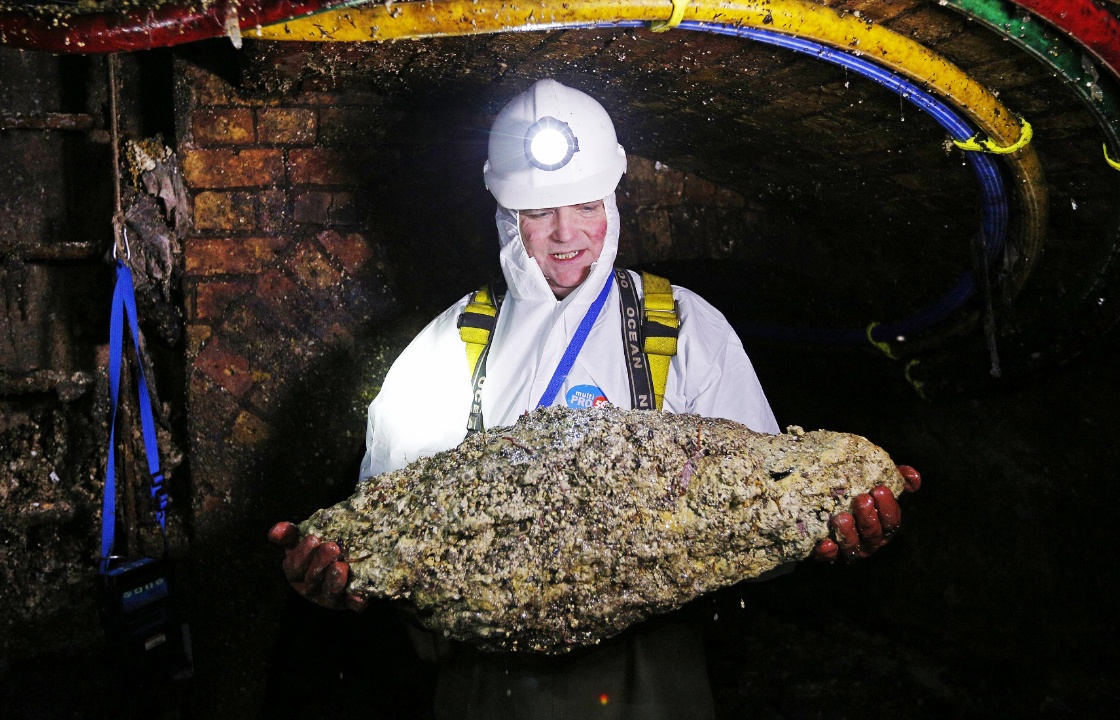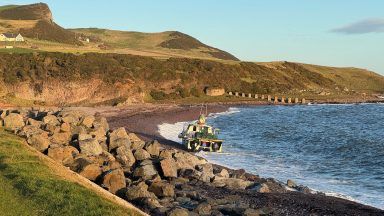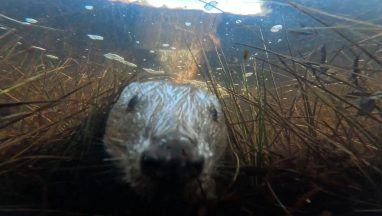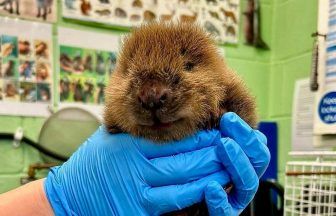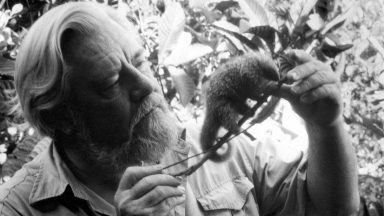Would you wear a perfume made from the debris that clogs our sewers?
Scottish scientists are pioneering a way to make sweet-smelling scents out of fatbergs.
A fatberg is a rock-like mass in a sewer system formed by flushed solids that won’t break down.
They are usually made up of wet wipes, cooking fat and grease, and can reach mammoth sizes.
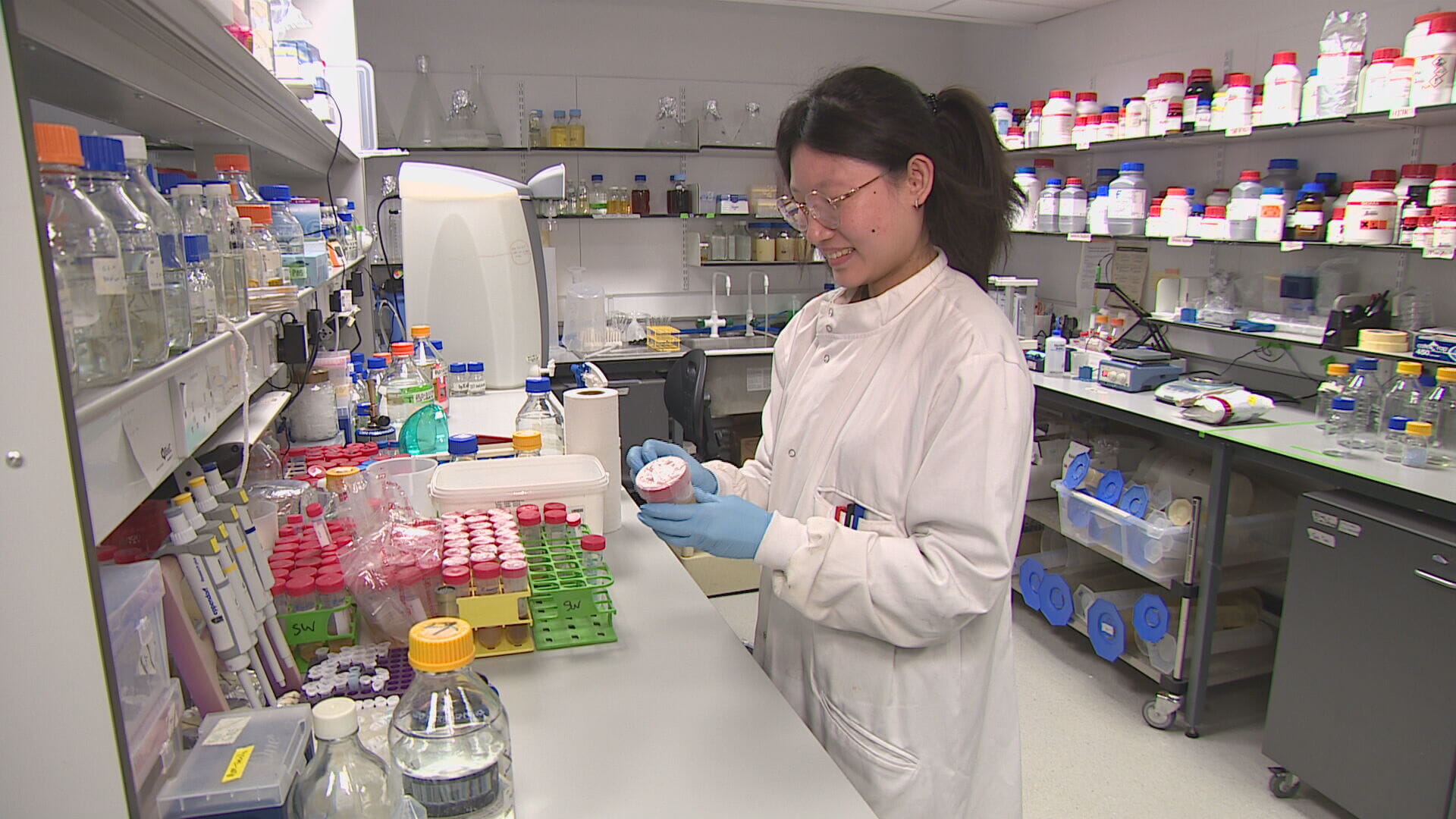 STV News
STV NewsResearchers at the University of Edinburgh have been feeding chunks of fatberg to a certain type of bacteria which eats it and then re-secretes it as an oil that smells of pine.
Biotechnology professor Stephen Wallace demonstrated how this waste could be turned into a sweet scent.
“What we’ve done is engineer bacteria to eat fatbergs and turn them into fragrance compounds used in products such as perfumes and shampoos,” he told STV News.
“The molecule we’re making is a tree pine fragrance – it’s a really high-value molecule used across the cosmetics industry.
“What the project shows is it’s possible to feed these bacteria in a way that makes products useful to everyday society.
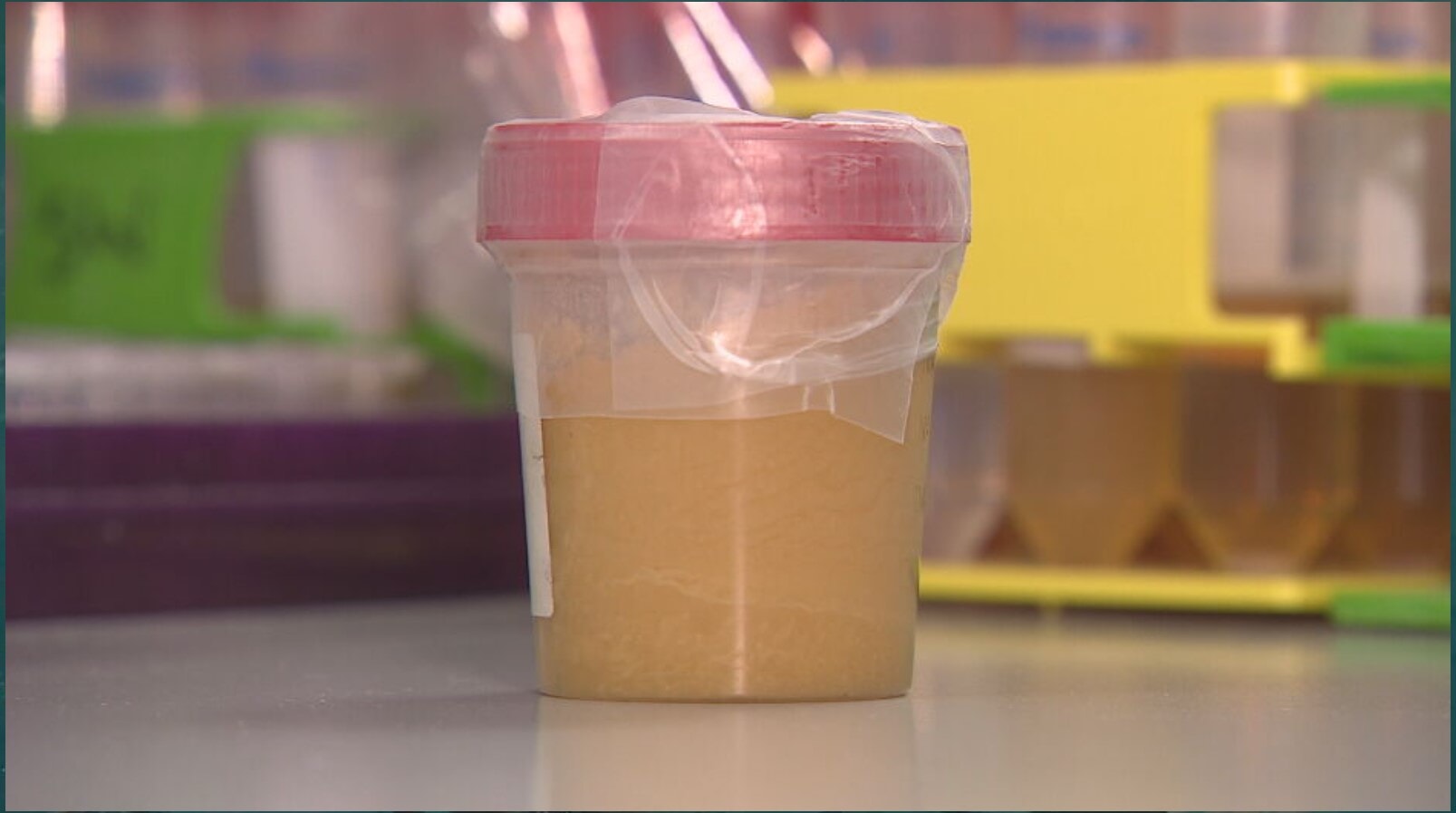 STV News
STV News“The fact you can make it from horrible sewer waste sort of still blows my mind – but it’s scientifically possible.”
Fatbergs form in the slower-moving parts of the underground sewage network and can cause a major impact on the environment.
One monster fatberg made history in 2017 when it was found beneath London. It was twice the length of two Wembley football pitches and weighed 130 tonnes.
Scientists here hope this fat-busting bacteria can help – and say there’s scope for bacteria to be used in sewage networks to prevent fatbergs forming in the first place.
‘We’re turning fatbergs into something valuable’
“These fatbergs accumulate in sewers, a horrible sort of glomerate of waste, fats and oils. We usually throw them away or landfill or incinerate them,” Professor Wallace said.
“This technology is most likely useful for fatbergs that have been isolated from sewers first and brought into the lab and transformed into something else.
“But it’s conceivable we could perhaps use engineered bacteria and put them into the sewers to enable them to eat fatbergs as they form.
“The costs associated with disposing of fatbergs – removing, throwing, bringing them in – are significant. We’re showing the cost can be offset and even increased by producing something from fatbergs that is useful and valuable.”
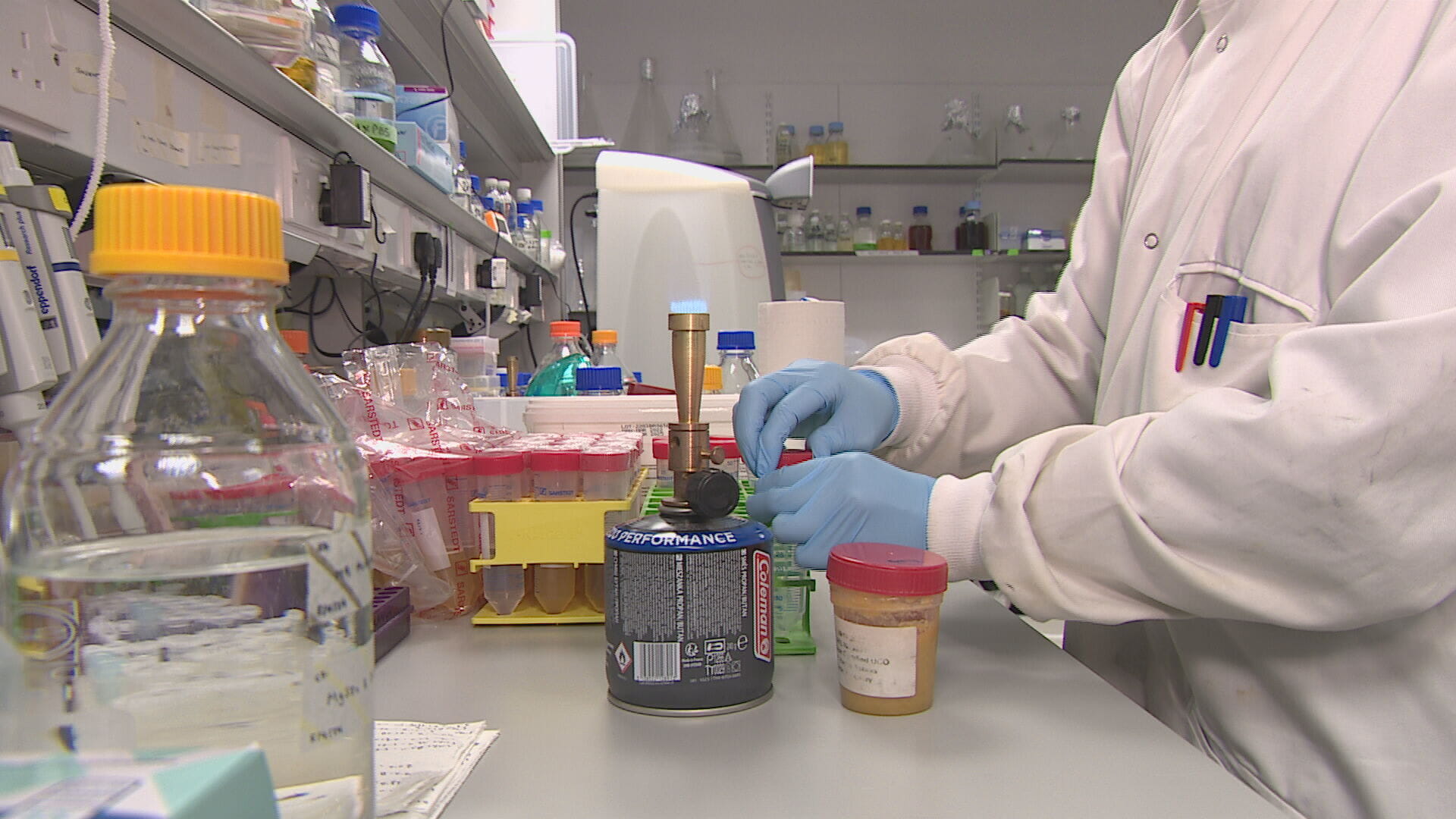 STV News
STV NewsBut their work comes amid a stark warning that the UK has already lost its position as a world leader in engineering biology.
The UK has already lost its position as a world-leader in certain scientific innovations and technologies, and is in “severe” danger of slipping further behind without urgent action, a House of Lords report has warned.
The cross-party Lords Science and Technology Committee said the UK must do more to boost innovation in the area of engineering biology to prevent it from entering a “doom loop” where foreign competitors leapfrog British efforts.
The report follows an eight-month inquiry into engineering biology, an emerging area of science which uses and adapts nature to help solve key societal problems around food, healthcare, energy and manufacturing.
Baroness Brown of Cambridge, chair of the committee, said: “Britain is a world-leader in scientific innovation, with a heritage that is the envy of the world.
“But all too frequently we are crashing into walls rather than smashing through ceilings.
“Pioneering companies urgently need to scale-up to become globally competitive – not get stuck in the investment ‘valley of death’. The committee believes that without urgent action across the key areas set out in our report, the UK is at severe risk of losing the potential benefits of a world-leading engineering biology sector.
“All too often we hear that when companies reach a certain size, they move abroad for better investment and development prospects, taking most of the economic benefit with them.
“This failure to scale in the UK is a long-standing issue which requires an urgent, concerted, cross-government approach to fix.”
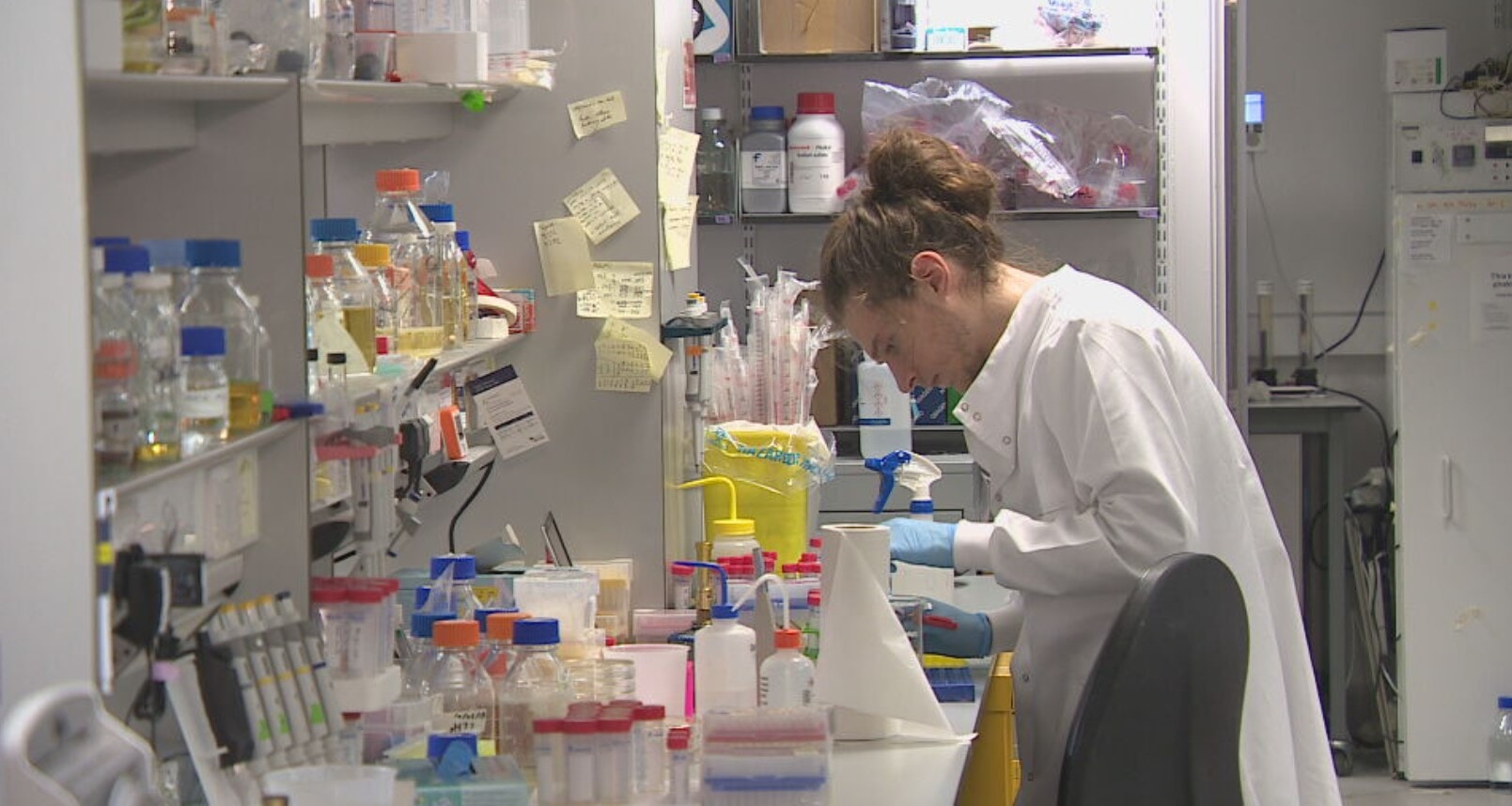 STV News
STV NewsProf Wallace believes projects like theirs will help position the country as a global science leader.
“There’s such scientific strength in engineering biology in the UK. We have tremendous opportunities to be leaders in this field, in technologies that are positioned to tackle climate change and achieve net zero, as well as remediating waste from the environment. The benefits of this technology are significant.
“It’s really important that we lead the way in this effort.”
A Government spokesperson said: “We welcome the committee’s report.
“Engineering biology is a technology with enormous potential, and we agree that it is critical to support home-grown engineering biology companies – which our bold national vision for engineering biology also makes the case for.
“Our commitment to the UK’s burgeoning engineering biology sector is clear: from our £100m investment in the Engineering Biology Mission Hubs and Awards, to efforts to improve the regulation of this critical technology, including through the new Regulatory Innovation Office.”
Follow STV News on WhatsApp
Scan the QR code on your mobile device for all the latest news from around the country


